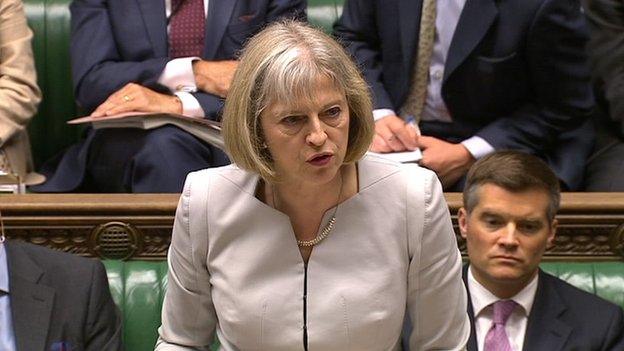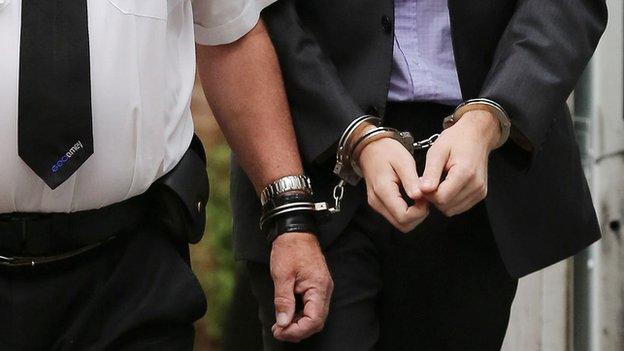European Arrest Warrant needs reform, say MPs
- Published

Mr Vaz said the warrant had resulted in a "number of miscarriages of justice"
The European Arrest Warrant is "flawed" and needs to be reformed, the Home Affairs Committee of MPs has said.
The EAW, introduced in 2004, allows a national judicial authority such as a court to get a suspect extradited between EU member states.
Home Secretary Theresa May has vowed to change the law to prevent the warrant being used to extradite UK nationals on trivial or dubious charges.
But the committee said the government's plans did not go far enough.
It called for an urgent vote in the House of Commons on continued UK participation in the scheme.
'Foolish'
Committee chairman Keith Vaz said: "The European Arrest Warrant, in its existing form, is fundamentally flawed and has led to a number of miscarriages of justice with devastating consequences for those concerned.
"We welcome the government's proposed reforms, but are concerned that they do not go far enough.
"The House should be given the opportunity to vote separately on continued UK membership of the EAW as early as possible in order to provide a parliamentary mandate for any future negotiations."
In its report, the committee said some countries used the EAW simply to expedite investigations or in relation to relatively minor crimes.
It said that for these reasons the UK received disproportionately more warrants than it issued.
The government wants to opt out of many, but not all, pan-EU criminal justice measures. To do so, under the terms of the Lisbon Treaty, it must opt out of all 133 and then renegotiate to opt back in to those it wants to retain.
Mrs May has said the UK will seek to continue to participate in 35 of the measures, including the EAW, which are "in the national interest".
Despite being under pressure from Conservative backbenchers to abandon the EAW entirely, Mrs May said she would amend UK legislation to ensure the warrants could be refused for minor crimes.
In its report the committee argued that, if the government proceeded with the opt-in as proposed, it would not result in any repatriation of powers to the UK - and may even result in a net flow of powers to the EU institutions.
Shadow home secretary Yvette Cooper said: "Labour supports the European Arrest Warrant and the other crucial measures of EU co-operation that tackle serious crime, bring criminals to justice and protect victims."
She added: "While the government's U-turn on the arrest warrant has been welcome, the home secretary has been foolish in putting EU co-operation at risk in a big game of phoney hokey-cokey."
Libby McVeigh of Fair Trials International, a human rights charity that provides assistance to people arrested in a country other than their own, said: "The arrest warrant is an important crime-fighting tool but, without reform, will continue to be used inappropriately with devastating human consequences."
- Published15 July 2013

- Published9 July 2013

- Published5 December 2014
